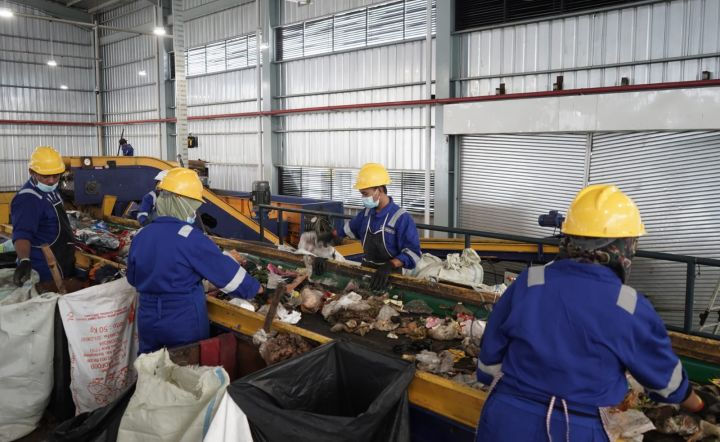TPST Kertamukti Becomes a Model for Sustainable Waste Management Transformation in Bekasi
- STIC CEGIR

- Jul 25
- 1 min read

The Bekasi Regency Government, in collaboration with various ministries and the World Bank, is implementing the ISWMP (Improvement of Solid Waste Management to Support Regional and Metropolitan Cities Project) to reform the waste management system into one that is more modern, inclusive, and sustainable. This program is a cross-institutional partnership involving the Bekasi Regency Government, the Ministry of Public Works and Housing (PUPR), Bappenas, the Ministry of Environment and Forestry (KLHK), the Ministry of Health, and the World Bank. It is built upon five key pillars, including regulatory strengthening, community participation, institutional capacity building, development of waste service financing mechanisms, and the construction of technologically advanced waste treatment facilities such as TPST Kertamukti. Located in Kertamukti Village, the TPST facility spans 6,000 square meters and is capable of processing up to 50 tons of waste per day, fully serving a population of 80,000.
TPST Kertamukti produces two main outputs: Refuse Derived Fuel (RDF) as an alternative fuel, and high-value Recyclable Materials (MDU). Operational efficiency is demonstrated by the low residual waste rate of only 11%, nearing the Key Performance Indicator (KPI) target of 12%. A concrete example of collaboration is the signed MoU with PT Indocement to use RDF as a substitute for coal. The success of this facility signifies a paradigm shift from a dump-to-landfill system to a reduce-process-reuse approach, emphasizing the importance of waste segregation at the source as a key factor for efficiency and sustainability in Bekasi’s waste management system.
Reference:




